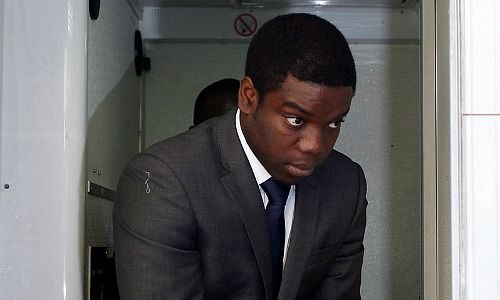Kweku Adoboli has become a household name at least in the banking world for all the wrong reasons. He caused his employer, Swiss bank UBS, a $2.3 billion loss through unauthorized trading. His name still stands for a failed system that allowed fraudulent behavior to have such massive consequences.
Kweku Adoboli was sentenced to seven years in prison in November 2012 after a conviction of fraud causing the loss at the London unit of UBS. After his release from prison in June, Adoboli now faces deportation to his native Ghana. He will appeal against this decision, having spent most of his life in Britain.
He told the «Financial Times» (by subscription only) that he didn't want to cause any harm with his actions. Harm he has caused, and it is still being felt at the bank four years after the fraud was detected.
Job Cuts in London
Cleaning up following the detection of the loss, UBS detected three more cases and sacked ten employees, among them John Hughes, Adoboli's boss.
But that was only for starters: Switzerland's biggest bank went on to cut 500 jobs in London and cut the bonus pot by 60 percent. It strengthened the control system and reigned in the bankers.
«When you lose $2.3 billion, you have to cut jobs,» Tom Naratil said, chief financial officer at UBS.
Lingering Anger
Most colleagues are still angry about Adoboli, who they feel has caused all the problems. Sergio Ermotti, who had to take care of the case after Oswald Grübel stepped down, called the scandal a «small earthquake» in an interview with Tyler Brulé. He wanted to open a new chapter as quickly as possible, but the old one seems to linger in London.
In 2011, UBS was in a different shape: The bank had only just recovered from the crisis of 2008 and the tax conflict with the U.S.
Lessons Learned?
Regulators had assumed that the bank had learned from the subprime losses and put controls in place that would detect erroneous behavior by its traders in an early stage.
And then came Adoboli. He defrauded the bank with simple means over the course of two years, opening secret accounts where losses could be hidden. The shock at the bank was enormous. Investors got rid of their shares and UBS lost 4.5 billion francs in value. UBS CEO Grübel accepted responsibility and stepped down. The bank paid a fine of £30 million.
Adoboli also paid his price. He claims that people like him and Tom Hayes, who was sentenced to 14 years in prison for manipulating the libor rate are not simply rotten apples in an otherwise clean industry. Between profit seeking and compliance demands lies a gulf which may yet cause further earthquakes.



































